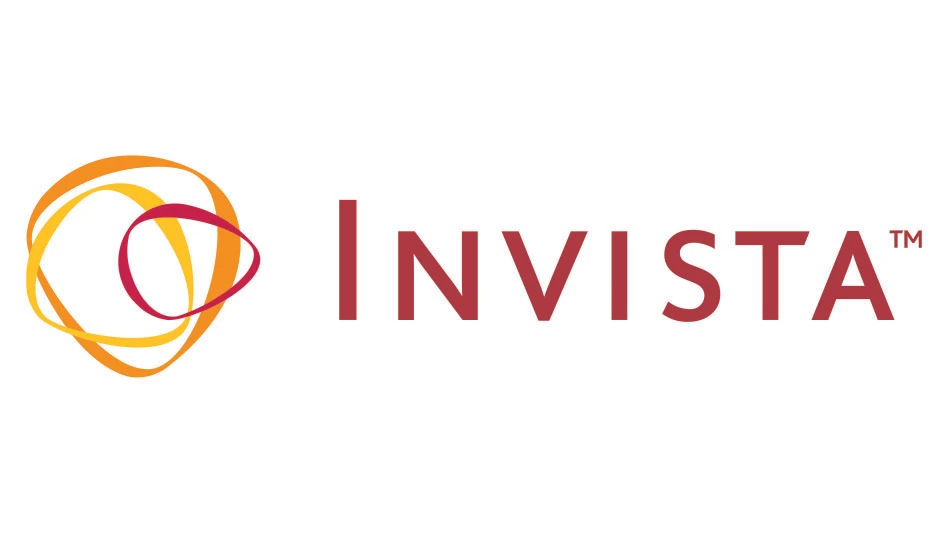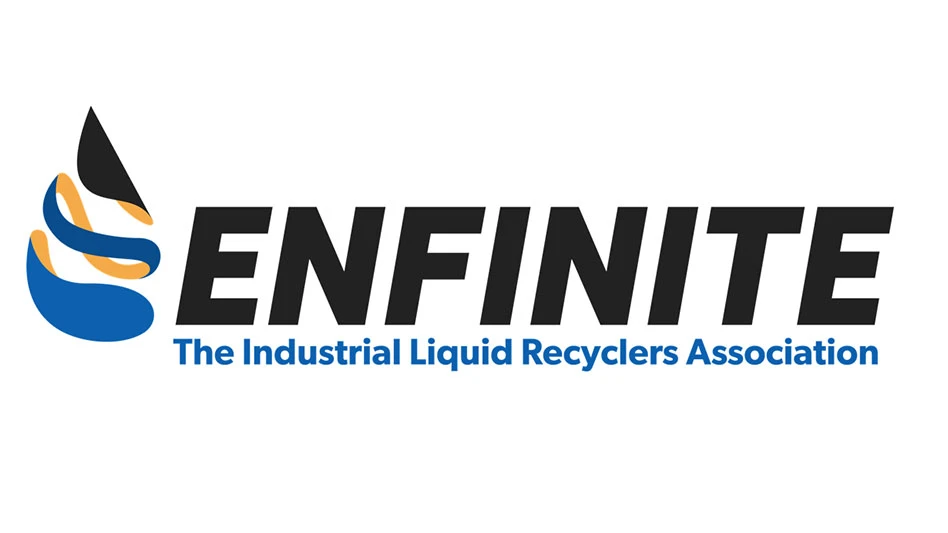This is the time to look at the size of your recycling circles, determine how to expand them now, and get expert advice on where you’ll be in the year 2000 and beyond," proclaims the National Recycling Coalition, Alexandria, Va. Thus lies the theme of the NRC’s upcoming 14th Annual Congress & Exposition in Kansas City, Mo., from Sept. 10-13 at the H. Roe Bartle Hall Convention Center – the largest contiguous column-free exhibit space in the nation.
The four-day event will host more than 2,000 of recycling’s key players, 130 exhibitors and 50 educational seminars. "Many states are approaching the period of their programs where their goals are coming due," says Edgar Miller, NRC’s policy and program director. "So, this will be sort of a mid-term assessment for them and also to examine the last five years of recycling."
"I am entering this conference looking at the issues that we still have to face," says Mark Lichtenstein, NRC president, and the director of solid waste management for Oswego, N.Y. "I do not want to rest on our laurels, and want some vision of where we need to go from here."
Lichtenstein says that there are two main areas that concern him right now: the supply situation of paper and plastics; and the relative apathy of many local governments concerning environmental issues. "Although the market has been good in terms of prices, we need to address the shortages in paper and plastic. And the NRC has formed a task force to look at that. That committee will host an open session at the conference. It is not scheduled yet, so attendees need to look for it when they get to the conference. I think it will be a very good session, and I encourage everyone to attend.
"Also, I feel there is a general lack of decision making at the local government level," continues Lichtenstein, "many municipalities are under budget crises, and the current ‘tax revolt’ atmosphere in the country does not help. So, in effect, many programs are going on the back burner without any real debate."
KEYNOTE ADDRESS
The keynote address will be delivered by Paul Hawken, a businessman and writer who has devoted his energies to environmental ventures. Hawken is the author of "The Ecology of Commerce," labeled as the first book to apply real ecological analysis to business. He says that it is in a business’ best interest to take the environment into account.
Hawken will also expand upon how recycling functions in commerce, and will preview his latest untitled book which proclaims that we are in the midst of an environmental industrial revolution. In addition, he will address market forces that foster positive environmental and societal change, including "ecological indicators," that will supplement the current economic indicators of commercial progress.
"Hawken believes that businesses can truly become more competitive in the marketplace in the long run if they recycle and operate in an environmentally-sound manner," says Miller. "He has a unique perspective and is going to review a lot of examples of companies that are environmentally responsible and profitable to make his point."
"I am looking forward to his speech," says Lichtenstein. "His presentation is important and timely because of changes in the marketplace. Environmentalists have to learn that recycling is an economic issue, and they have to be able to explain that to the lay person."
SEMINARS AND TOURS
The 50 educational seminars are divided into 10 recycling disciplines: source reduction and reuse; business recycling; market development; ReTAP technology; recycling information systems; policy and programs; collection and processing; organics and composting; education; and international.
"This year, there are more interactive formats," says Miller, "and I think attendees will get more out of the sessions." Many sessions include "round-table" discussions built into the allotted seminar time frame, however some have dedicated round-table time immediately after they are completed.
"One of the sessions that I am most excited about is the ‘Mandates vs. Free Market’ one," says Miller. "On one side will be speakers advocating that the free marketplace can solve recycling problems with less legislation and more freedom, and on the other side, will be environmental advocates that will press the case for more mandates and give examples of why they are working. Then, we will introduce a compromise proposal that will let businesses work within a national framework of industry and environmental guidelines. After that, the fireworks will fly during the open discussion period."
The program this year also includes two more tracks than last year. The two new tracks are the business recycling and the international tracks. The business recycling track is designed for the private sector and other interested parties, and addresses issues from expanding the recycled product marketplace to the nuts and bolts of purchasing specifications. "We developed this track for this year’s convention because we are continuously looking to the private sector for solutions and experience," says Miller.
The international track was added to review trends in the international arena and how United States recycling efforts tie in with the global community. International recycling experts will talk about what’s new with overseas programs, what the market trends are and how U.S. companies can benefit from their efforts.
Some of the highlights of the international track include seminars on recycling and NAFTA, and recycling policies in South/Latin America, Europe, Japan, Korea and China.
Highlights of the new business recycling track include seminars on buying recycled products, the best ways to recover materials from small- to medium-sized business, and contracting commercial collection, among others.
In addition, there will be a special day-and-a-half mini-seminar sponsored by the College and University Recycling Caucus that will begin in the afternoon on Saturday, Sept. 9, and run all day Sunday, Sept. 10. The seminar will take an in-depth look at college and university recycling programs, and study multi-million dollar purchasing, academic research and the electronic information highway – all employed to better manage recycling and waste reduction at institutions of higher education.
All other seminars begin on Monday, Sept. 11 and run through Wednesday, Sept. 13.
In addition, there are several workshops, which are longer in duration and cover certain topics in more detail. Those workshops begin Sunday, Sept. 10 and run through Wednesday, Sept. 13. Workshop topics include: association fundraising; ReTAP tools and tactics; evaluating business waste; exploring the "ins and outs" of setting up an officer paper prevention program; cooperative marketing programs; setting up a recycling program at a school; solid waste management accounting; measuring recycling rates; and Chicago Board of Trade orientation.
Sponsored Content
Redefining Wire Processing Standards
In nonferrous wire and cable processing, SWEED balances proven performance with ongoing innovation. From standard systems to tailored solutions, we focus on efficient recovery and practical design. By continually refining our equipment and introducing new technology, we quietly shape the industry—one advancement at a time.
Sponsored Content
Redefining Wire Processing Standards
In nonferrous wire and cable processing, SWEED balances proven performance with ongoing innovation. From standard systems to tailored solutions, we focus on efficient recovery and practical design. By continually refining our equipment and introducing new technology, we quietly shape the industry—one advancement at a time.
Sponsored Content
Redefining Wire Processing Standards
In nonferrous wire and cable processing, SWEED balances proven performance with ongoing innovation. From standard systems to tailored solutions, we focus on efficient recovery and practical design. By continually refining our equipment and introducing new technology, we quietly shape the industry—one advancement at a time.
Sponsored Content
Redefining Wire Processing Standards
In nonferrous wire and cable processing, SWEED balances proven performance with ongoing innovation. From standard systems to tailored solutions, we focus on efficient recovery and practical design. By continually refining our equipment and introducing new technology, we quietly shape the industry—one advancement at a time.
Sponsored Content
Redefining Wire Processing Standards
In nonferrous wire and cable processing, SWEED balances proven performance with ongoing innovation. From standard systems to tailored solutions, we focus on efficient recovery and practical design. By continually refining our equipment and introducing new technology, we quietly shape the industry—one advancement at a time.
Sponsored Content
Redefining Wire Processing Standards
In nonferrous wire and cable processing, SWEED balances proven performance with ongoing innovation. From standard systems to tailored solutions, we focus on efficient recovery and practical design. By continually refining our equipment and introducing new technology, we quietly shape the industry—one advancement at a time.
Sponsored Content
Redefining Wire Processing Standards
In nonferrous wire and cable processing, SWEED balances proven performance with ongoing innovation. From standard systems to tailored solutions, we focus on efficient recovery and practical design. By continually refining our equipment and introducing new technology, we quietly shape the industry—one advancement at a time.
SPECIAL EVENTS AND TOURS
Special events include a welcome reception on Sunday, Sept. 10 in the evening at the Kansas City Zoo; the NRC’s Annual Awards Ceremony on Monday, Sept. 11 in the morning; a jazz lover’s pub crawl on Monday, Sept. 11 in the evening; NRC’s annual softball game on Tuesday, Sept. 12 in the evening, followed by dance and silent auction; and an overnight camp outing at the zoo on Wednesday night, Sept. 13.
Several tours are scheduled throughout the show and promise to be enlightening and educational. Those tours include visits to the Eco-Walmart store that was designed from the ground up as an environmental model; the Douglas County Hazardous Waste Collection Center; the Toro/Olathe Manufacturing Center, one of the largest makers of tub-grinders and grinding systems;; various collection centers; Galamet Recycling to view cars being recycled; GST Steel to see an electric arc furnace melt scrap; and visits to a Ritz Carlton hotel, Hallmark Cards’ headquarters and a General Motors plant to learn about their aggressive recycling programs.
There will also be three mini-tours on Tuesday, Sept. 12. Those include a tour of Tri-Smith Plastics – the only grinding facility of its type within 300 miles of Kansas City. Tri-Smith is located 120 feet below ground in a reclaimed limestone quarry. The company processes post-consumer and post-industrial HDPE and PET into granulate form as feedstock for a variety of products. Authentic Kansas City barbecue will be served for lunch.
Another mini-tour will include a major Kansas City hospital to learn more about waste reduction techniques employed to handled medical waste. The tour is by Associated Purchasing, Inc., a non-profit purchasing group agency for 50 metropolitan area hospitals and health care facilities.
The third mini-tour is of the newly refurbished Deffenbaugh material recovery facility. This MRF is designed to process source-separated materials from residential curbside, commercial collection and drop-off programs. The MRF currently diverts more than 41,600 tons per year from local landfills.
The exposition closes at noon on Wednesday Sept. 13, with an NRC Board of Directors meeting in the afternoon.
The author is managing editor of Recycling Today.
Get curated news on YOUR industry.
Enter your email to receive our newsletters.

Explore the August 1995 Issue
Check out more from this issue and find your next story to read.
Latest from Recycling Today
- Cotton Lives On kicks off 2025 recycling activities
- Georgia-Pacific names president of corrugated business
- Sev.en Global Investments completes acquisitions of Celsa Steel UK, Celsa Nordic
- Wisconsin Aluminum Foundry is a finalist for US manufacturing leadership award
- MetalX announces leadership appointments
- Sofidel agrees to purchase Royal Paper assets
- US Plastics Pact report charts expansion path for recycled content in packaging
- USTR announces phased measures designed to address China’s shipbuilding dominance






